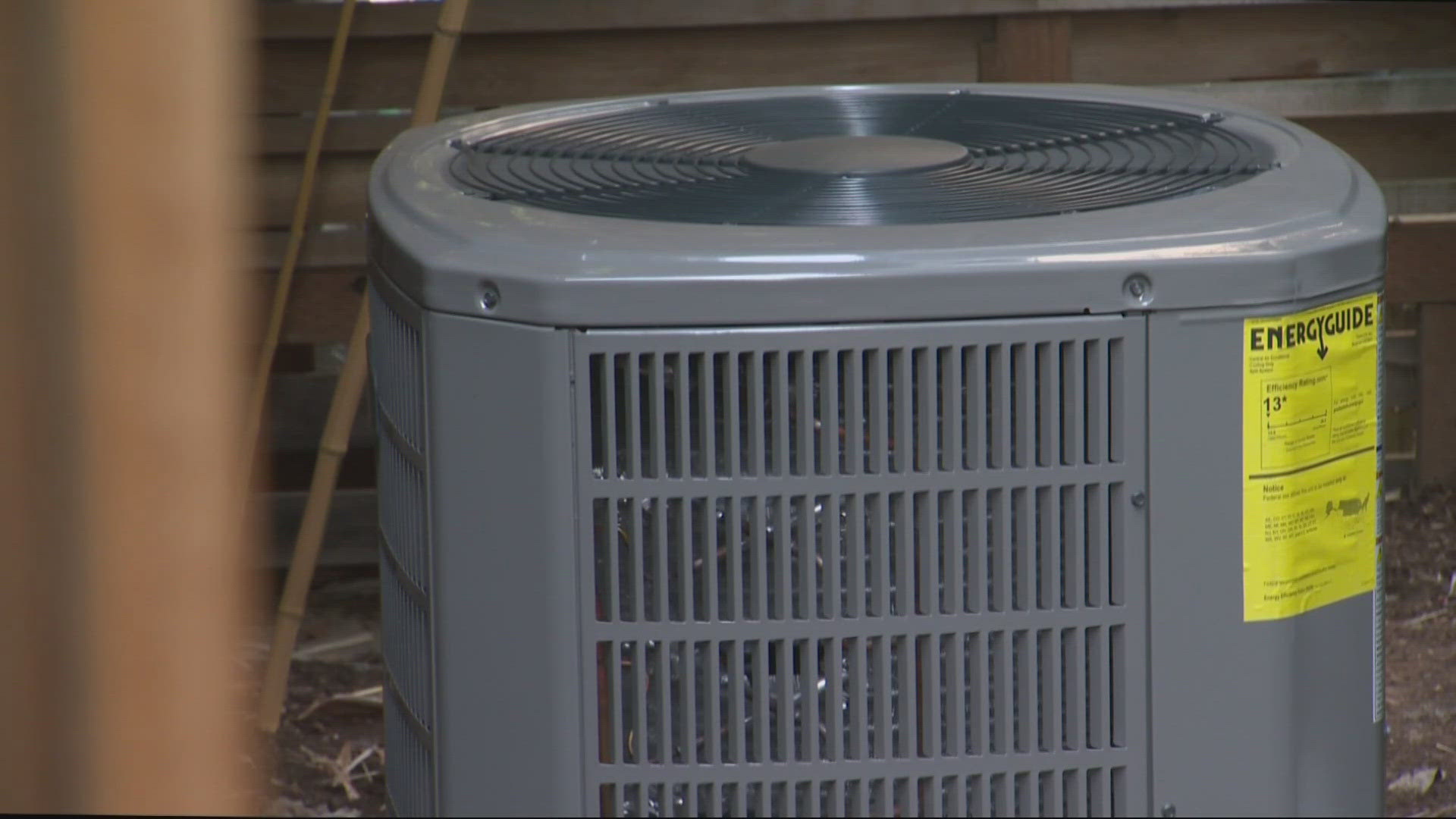VANCOUVER, Wash. —
As temperatures around the Pacific Northwest climb above 100 degrees for the next few days, everyone will be looking for ways to keep their home cool.
For those with air conditioning, those systems will likely be put into overdrive.
But not everyone does so in the most efficient way, said Anthony Jeffries, an energy counselor with Clark Public Utilities in Vancouver.
"They're going to these extremes of having their home be way too warm, and then trying to bring it down too fast," he said.
Jeffries said that instead of using an air conditioner to fight off the brutal heat, people should be looking to take advantage of the cooler parts of the day.
"In the morning, we can open windows up, have that heat escape out of the house, have that cool air come in," he said. "That will offset how much that air conditioner has to work later on that day."
He also said sweltering residents should be mindful of the "20-degree rule."
Most air conditioners generally can't lower the temperature in a home much more than 20 degrees below the temperature outside.
So if it's 100 degrees in your neighborhood, but your thermostat is at 67, your wasting energy, driving your utility bills up and putting extra strain on your equipment.
"If we're pushing past that 20-degree difference in temperature from outside to inside, your AC is not going to bring it there," Jeffries said.
Even if you don’t have air conditioning, Jeffries said, many of the same tips apply.
"Opening those windows up (when it’s cool outside), portable fans, box fans, ceiling fans, all those things are pretty low users of power," he said. "Utilizing that is really going to help people stay comfortable during our upcoming weather."
He also pointed to a number of DIY air conditioners, sometimes known as "swamp coolers," that can help people keep cool.
Whether you have air conditioning or not, Jeffries said covering windows, especially those facing south, can help to keep the heat out.
And he recommended avoiding doing things inside the home that create heat — like using the oven, the dishwasher or doing laundry.
Most importantly, though, is to keep a close eye on your own health and your neighbors who might be vulnerable. If your home feels too warm, seek out a cooling center.
If you notice signs of dehydration, heat exhaustion or heat stroke, seek medical attention as soon as possible.

